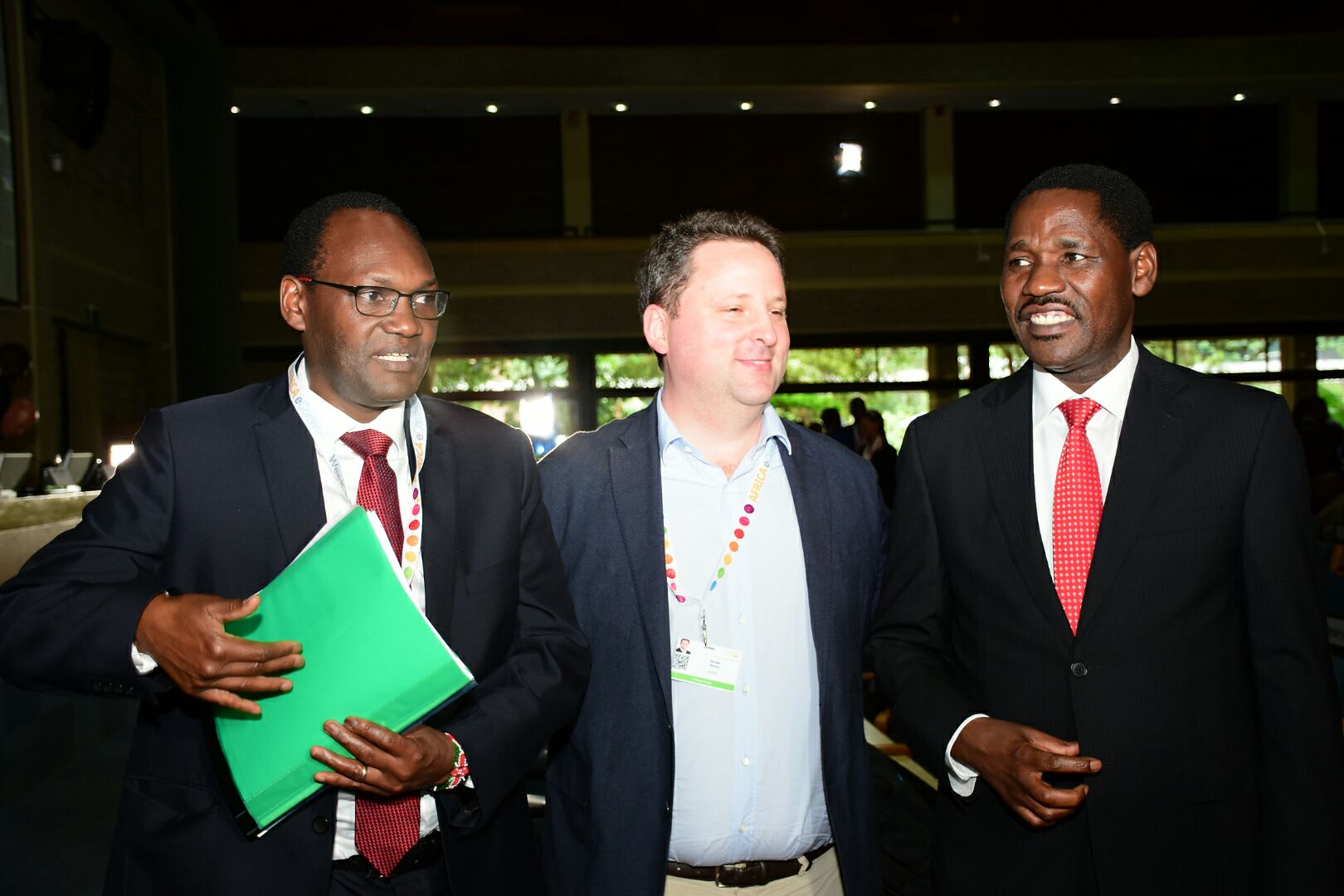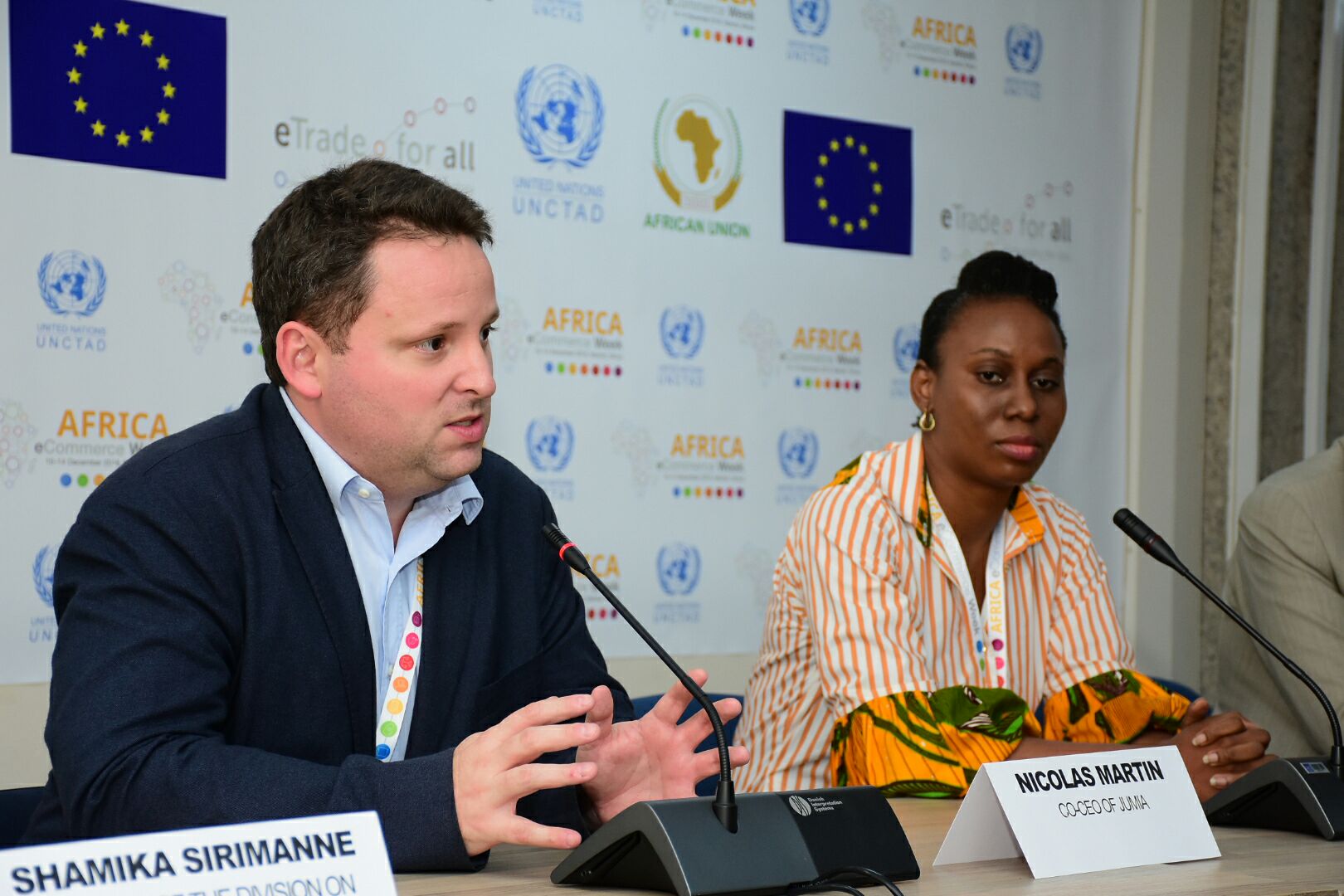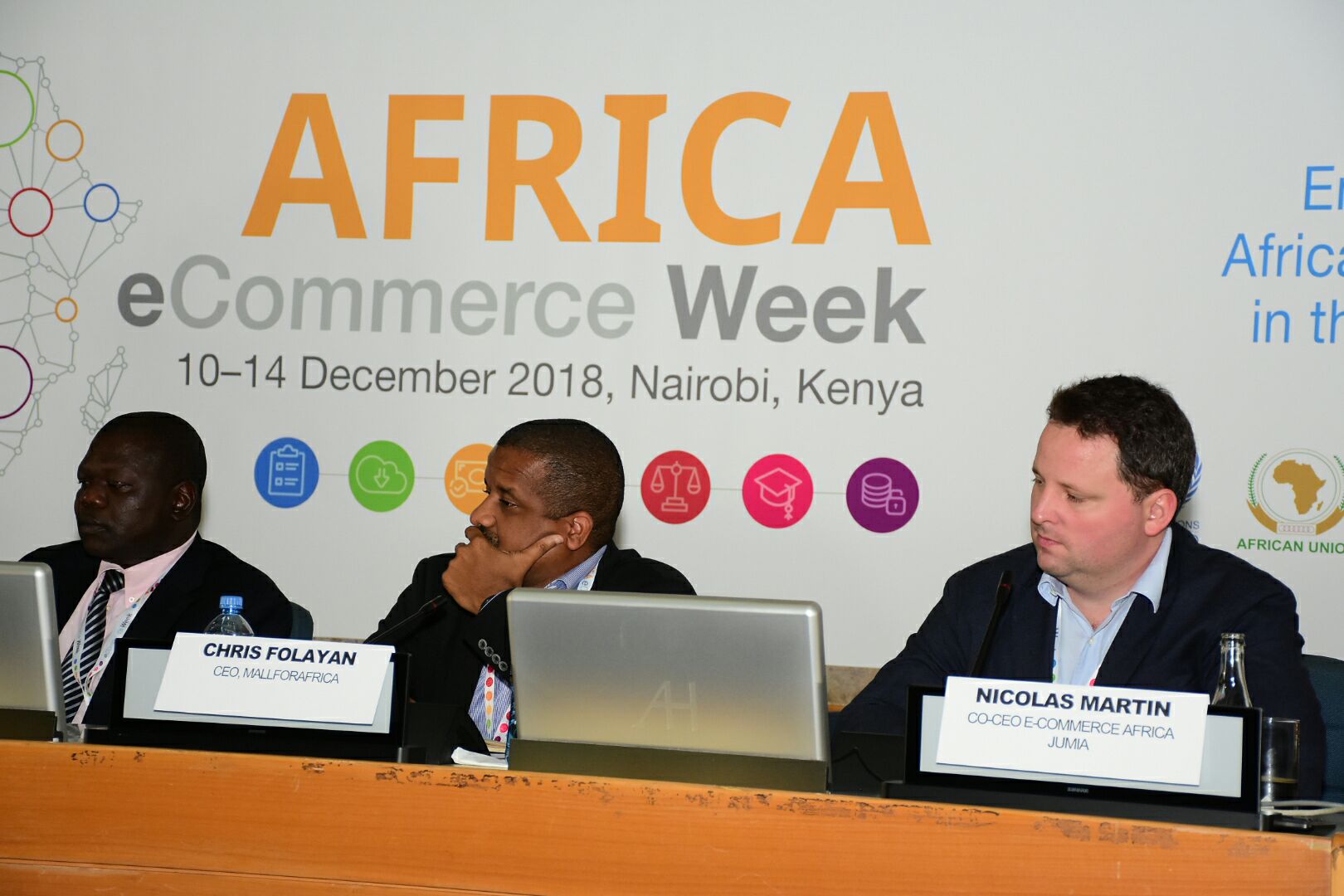
Africa is the world’s next e-commerce hub. The continent holds unexploited potential in digital trade that will not only impact lives, but also change the way Africans do business and the scope of intra-trade across the continent. This has been said by Jumia Africa’s co-chief executive officer, Nicolas Martin. Jumia Africa is currently the leading e-retailer in the continent.
Mr. Martin was speaking during the Africa E-commerce Week forum in Nairobi. The forum was organized by UNCTAD, UNECA, and the African Union. He further pointed out that investing in digital platforms to reach out to young and tech-savvy African consumers remains commercially viable. “Africa should be considered the next growth frontier in the global e-commerce space because of high internet penetration and smartphones ownership,” said Martin.
His view was echoed by the United Nations Conference on Trade and Development (UNCTAD) Secretary General Mukhisa Kituyi. According to Dr. Kituyi, the potential for e-commerce growth in Africa is largely underutilized. “Today, broadband should be seen as a public utility. It is very clear that e-commerce and the digital economy do not happen by accident but as a result of purposeful actions,” said Dr. Kituyi.
During the forum, UNCTAD launched the global e-commerce ranking survey dubbed Business-to-Consumer (B2C) E-commerce Index. In the index, Kenya was ranked seventh in Africa and 85th globally in the uptake of e-commerce. Mauritius was ranked top followed by Nigeria and South Africa. Despite leading in Africa, Mauritius was ranked at position 55 globally. Worldwide, Netherlands took the top position followed closely by Singapore and Switzerland.
Subsequently, Dr. Kituyi noted that more needs to be done to enhance the penetration of e-commerce in Africa. Currently, three-quarters of the African population has yet to start using the Internet. “However, the continent is showing progress in key indicators related to B2C e-commerce. For example, there were about 21 million online shoppers in Africa in 2017,” said Dr. Kituyi. He also noted that since 2014, Sub-Saharan Africa has surpassed world growth on three out of the four indicators used in the index.
Malcolm Johnson, who is the International Telecommunication Union Deputy Secretary General, concurred. Despite more than 50 per cent of the world being connected to the internet, the level of connectivity in Africa remains relatively lower. “One of the biggest problems is a lack of an incentive for people to get connected,” he said. “People have to be persuaded as to why it’s to their advantage to spend money to get connected.” He further noted that digital skills need to be nurtured so that people, and especially women, can appreciate the returns available by getting online.
In the same vein, Mr. Martin observed that while the most impactful actions were always the most long-term and expensive, there were low-hanging fruits to picked. “The coordinated effort of millions will bring about the change we need in Africa. The power of the marketplace is huge,” he said. He added that simply implanting the 25-year old regulatory regimes of Europe into the six-year old market of Africa would be “suicide” for new businesses. For example, said Mr. Martin, more needs to be done to offer more relevant regulatory solutions for Africa in order to attract international investment as well as create a conducive environment.










